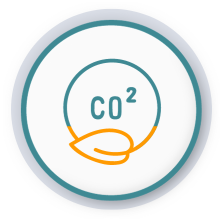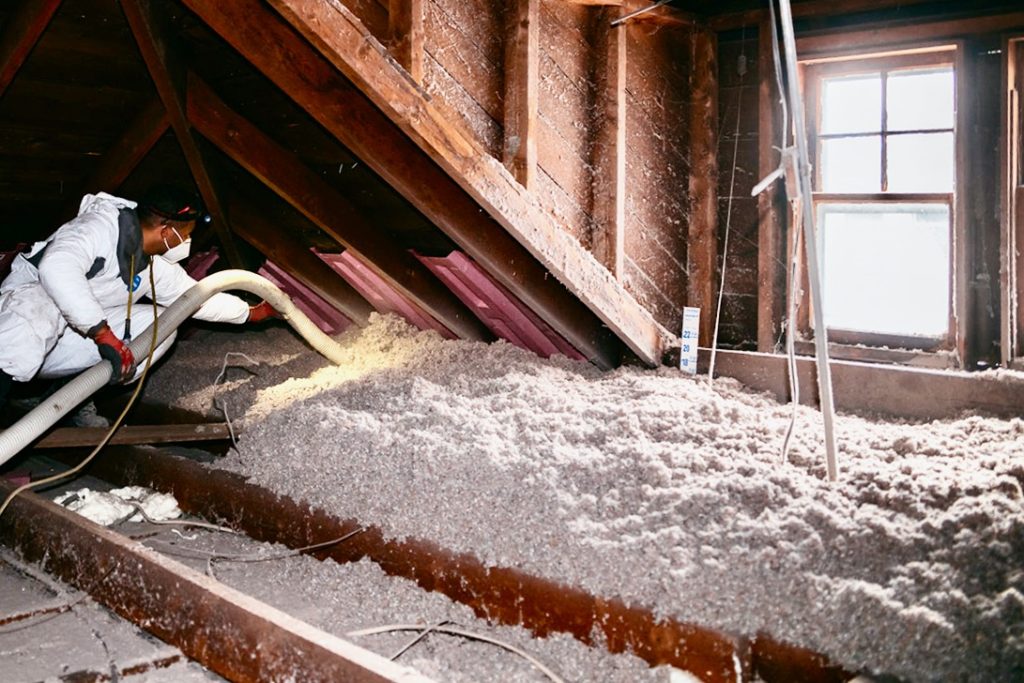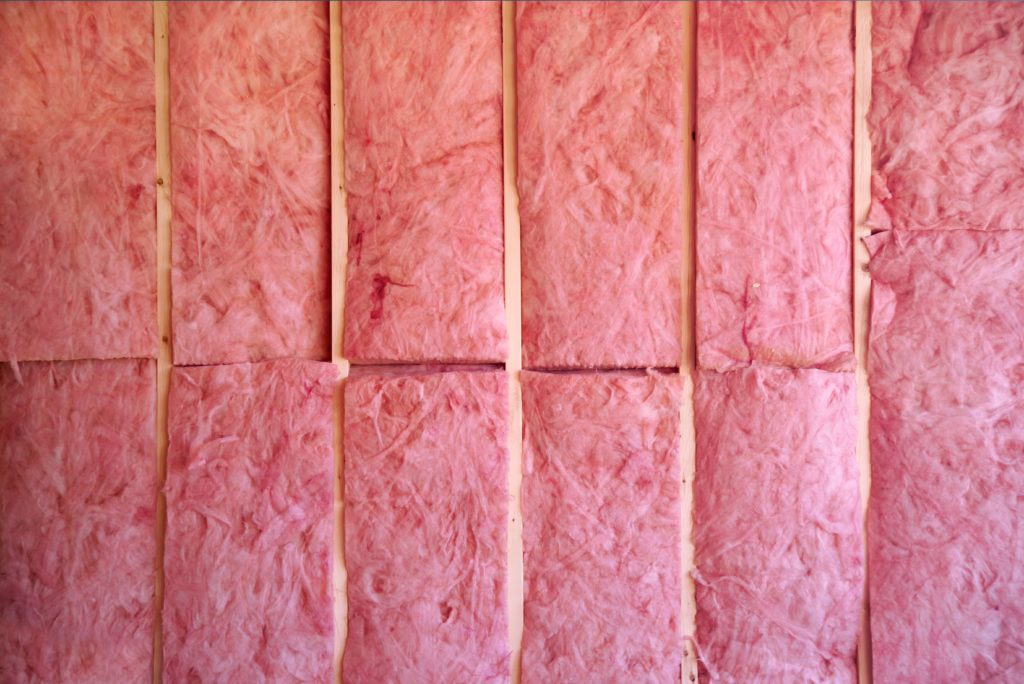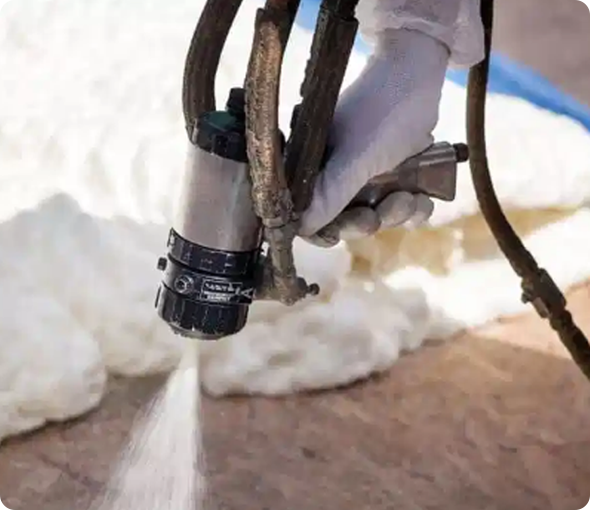Insulation Installation
Get 75-100% off a home insulation upgrade with Mass Save® rebates! Schedule a no-cost Home Energy Assessment to get your rebate.
Insulation is the jacket that keeps your home warm in the winter by trapping heat inside. In the summer, it works in reverse by blocking heat out. Without adequate insulation, your home isn’t protected against outside temperatures, and the energy from your heating and cooling system leaks out. Your heating and cooling systems have to work harder as a result, driving up your energy bills. Homes without the right amount of insulation often waste 20% of the energy they generate, which means you could be paying 20% more for heating and cooling!
Benefits of Home Insulation

Comfort
Insulation eliminates hot/cold spots and makes your house more comfortable year-round.

Savings
Well-insulated houses use less energy. Upgrading your insulation could lower your energy costs by 20 percent!

Energy Efficiency
Insulation makes your house more energy efficient, reducing your impact on the environment.

Rebates
You can save 75-100% on an insulation upgrade and receive no-cost air sealing with Mass Save insulation rebates!
Don’t miss out on Mass Save insulation rebates!
Schedule a no-cost Home Energy Assessment to see if you qualify.
Save with Massachusetts Insulation Rebates & Tax Credits
This is the best time to upgrade your home’s insulation! Massachusetts residents are currently eligible for generous Mass Save rebates and federal tax credits to reduce the cost of an insulation upgrade. Incentives can be used for attic insulation, basement insulation, exterior wall insulation, air sealing, and more!
75-100% off an insulation upgrade with Mass Save rebates.
No-cost air sealing to eliminate drafty areas in your home.
Mass Save HEAT Loan 0% interest financing up to $25,000 for insulation and air sealing.
Up to $1,200 in federal tax credits for insulation.
The Best Insulation for Massachusetts Homes
There are many different types of insulation, including spray foam insulation, cellulose insulation, and fiberglass batt insulation. Each type of insulation serves a unique purpose, and some are better suited for certain applications than others. During your no-cost Home Energy Assessment, Neeeco will evaluate your existing insulation, recommend the best option for your insulation upgrade, and help you qualify for Mass Save rebates!
Cellulose Insulation
Cellulose insulation offers many advantages and is the primary insulation material we use here at Neeeco. Blown-in cellulose insulation offers exceptional performance to keep your home comfortable and your energy costs low. It’s also environmentally friendly, fire-resistant, and pest-resistant.


Fiberglass Insulation
Fiberglass is one the most common types of insulation because it’s both highly effective and affordable. It’s also flame-resistant and non-toxic, making it a safe choice for home insulation.
Spray Foam Insulation
Spray foam insulation is becoming increasingly popular because it is highly effective and provides both insulation and air sealing in one. It is especially useful for hard-to-reach areas as it can be sprayed into tight cavities and will expand to fit the space. It is also extremely durable and resistant to wear and tear. However, spray foam insulation is not eligible for Mass Save rebates.

Neeeco Is Your Trusted Local Insulation Company in Massachusetts
When you need new insulation, Neeeco is here for you! We are a highly experienced home insulation company and energy efficiency expert in Massachusetts. Our team offers no-cost Mass Save Home Energy Assessments and can recommend the best upgrades to reduce your energy consumption and save you money on your bills, while helping you qualify for 75-100% off your insulation upgrade with Mass Save rebates.
*Some restrictions apply. Offers are subject to change or cancellation. Visit MassSave.com/HEA for full details.

